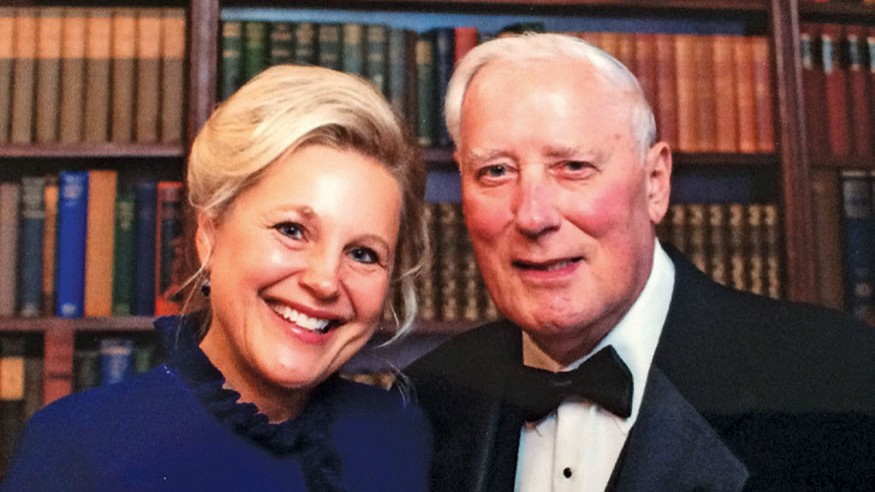
Discovering Future Medical, Science Leaders
E. Rolland Dickson ’55 still recalls this image: As a child, he watched fascinated as his mother, a nurse, sat and dressed his young friend’s wound, gently wrapping gauze around the boy’s burned hand.
“She was instrumental in showing me how much she enjoyed being able to help someone,” Dickson says. “She treated all my banged-up friends—even the black eye I gave a kid,” he muses. “She was certainly an influence in my thinking about medicine.”
Today Dickson’s own influence knows no bounds. A world-renowned liver transplant surgeon and researcher at the Mayo Clinic in Rochester, MN, Dickson led groundbreaking developments in treatments for liver disease and hepatic disorders that have transformed care for patients with end-stage liver diseases, and helped make Mayo the largest liver transplant center in the world. Dickson, an emeritus professor of medicine at the Mayo Clinic, Mayo Foundation, has more than 50 years at the institution. A clinical investigator in the Department of Internal Medicine and a consultant in the Division of Gastroenterology and Hepatology, Dickson believes regenerative medicine and the use of stem cells may be one of the new frontiers in science to repair and restore organ failure or injury.
Now Dickson is focused on establishing another brand of medicine—one that nurtures and supports a new generation of Ohio Wesleyan students eager to find new discoveries in medicine and science. In 2013, to further this goal, Dickson established the Dr. E. Rolland Dickson Endowed Scholarship to provide tuition support for Ohio Wesleyan pre-med and pre-science students.
Jacob O’Day ’15 was the first recipient of the Dickson scholarship. A pre-med, biology, and music performance major, O’Day, who grew up in the small town of Orient, OH, says the Dickson scholarship made a “significant impact” on his life. Without it, he says, “I wouldn’t have been able to attend Ohio Wesleyan.”
O’Day says OWU was his top choice because of the faculty-student interactions, the intellectual rigor, and the educational resources and opportunities. O’Day and Dickson kept up frequent correspondence during the pre-med major’s last two years. After graduation, O’Day worked as a scribe for an emergency service team that served two Columbus-area hospitals, and had been taking additional medical coursework. O’Day plans to enter the Ohio University Heritage College of Osteopathic Medicine in fall 2016.
Dickson also helped arrange a Mayo internship for Alexandra Cook ’16, who spent the summer of 2015 working on stem cell biology in an advanced lab that focuses on rebuilding the hearts of infants with congenital disease. “She performed well in the lab and benefited by exposure to outstanding scientists and technology,” Dickson says. Cook is considering Mayo for medical school.
Dickson says Mayo will continue to focus on major areas of science and medicine, such as cancer, neuroscience, transplantation, cardiovascular disease, and regenerative medicine.
“I’d like to provide competitive opportunities for Ohio Wesleyan students to spend a summer here and become engaged and work with top scientists in these expanding fields,” he says.
It’s an exciting time in medicine and science, Dickson says, and Ohio Wesleyan can participate in developing the future innovators in these areas. “We want to create a program so that students with ability and talent can come to Ohio Wesleyan and compete for summer internships in advanced science and technology.
“If Ohio Wesleyan earns the reputation of helping their students to experience firsthand working in premier laboratories, it will, in turn, enhance the recruitment of outstanding students.”
